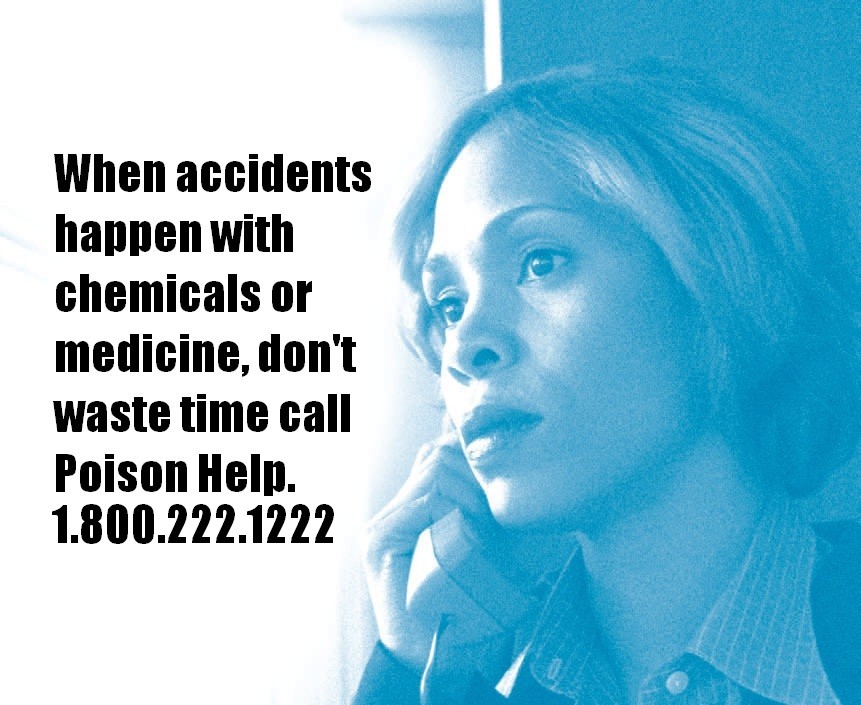Poisoning
Every day we use medicines, chemicals, and other products at home and work.
- Many of these products can be poisons. A poison is anything that can harm you if it is used in the wrong way
- used by the wrong person
- used in the wrong amount
Often poisons harm you when you don’ t expect it.
When a poison harms someone, that’s called poisoning. Most poisonings happen when poisons
- are swallowed
- come in contact with the skin
- are splashed in the eyes
- are breathed in or inhaled

Poisoning is a leading public health problem.
It does not just happen to children. It can happen to anyone, at any time and in anyplace. Poisoning is much more common than most people think.
Emergency Checklist
If someone may have been poisoned, call the toll-free Poison Help line (1-800-222-1222), which connects you to your local poison center, to speak with a poison expert right away. This expert can give you advice on first aid and may save you from a visit to the emergency room.
Below is a checklist to help you in the event of a poisoning.
First steps
- If the person is not breathing, call 911.
- If the person inhaled poison, get him or her fresh air right away.
- If the person has poison on the skin, take off any clothing the poison touched. Rinse skin with running water for 15 to 20 minutes.
- If the person has poison in the eyes, rinse eyes with running water for 15 to 20 minutes.
- Do not use activated charcoal when you think someone may have been poisoned.
Calling Poison Help
- Do not wait for signs of poisoning before calling Poison Help (1-800-222-1222), which connects you to your local poison center. Stay calm. Not all medicines, chemicals, or household products are poisonous. Not all contact with poison results in poisoning.
- Make sure to have the container of the product you think caused the poisoning nearby. The label has important information.
Be ready (if you can) to tell the expert on the phone:
- The exposed person’s age and weight
- Known health conditions or problems
- The product involved
- How the product contacted the person (for example, by mouth, by inhaling, through the skin, or through the eyes)
- How long ago the poison contacted the person
- What first aid has already been given
- Whether the person has vomited
- Your exact location and how long it would take you to get to a hospital